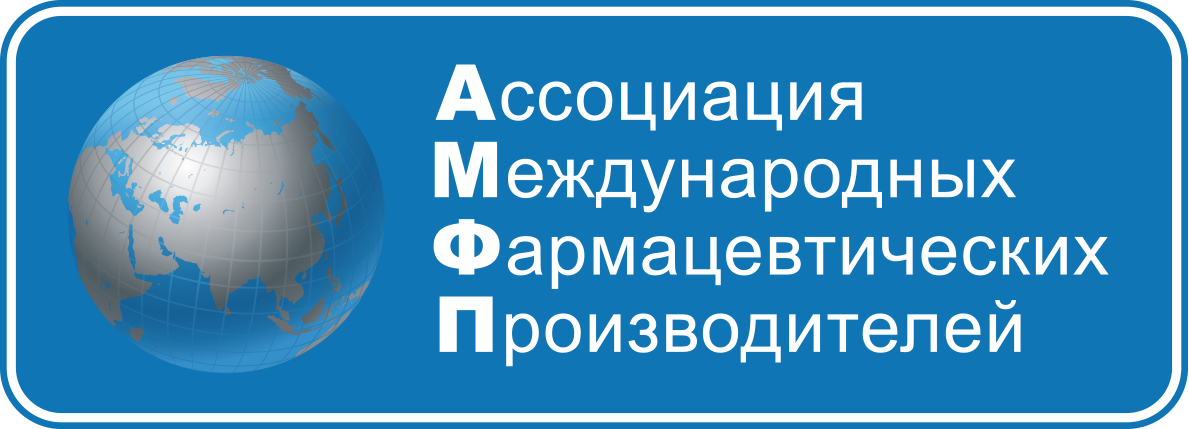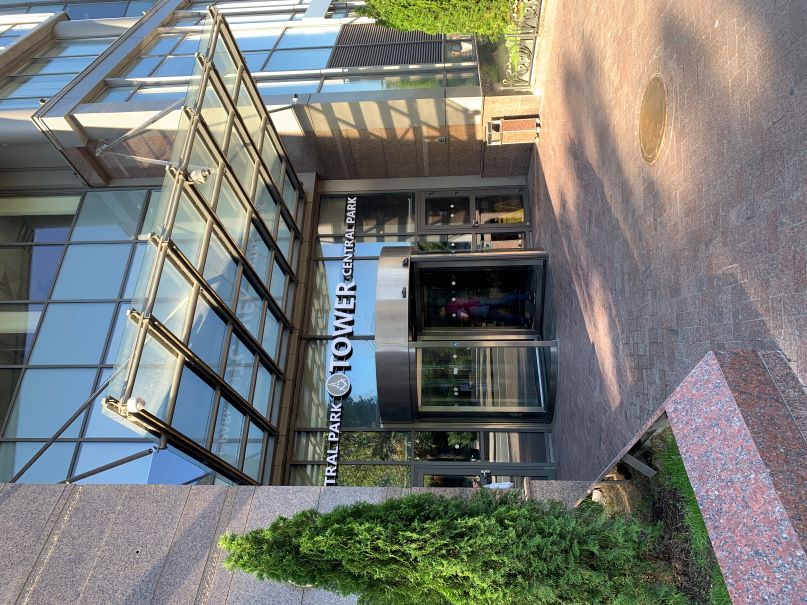Developing Cross-Industry Responsible Self-Regulation: The Federal Antimonopoly Service of the Russian Federation and Professional Associations Have Agreed to Common Approaches to Advertising Legislative Compliance
13.11.2018On November 7, 2018, the leading professional associations in the pharmaceutical industry and communication services market, in the presence of FAS Russia, signed the “Recommendations on compliance with legislation on advertising of non-prescription medicines” in Moscow. It was developed in close cooperation with FAS Russia.
The Recommendations were initiated by the Association of International Pharmaceutical Manufacturers, the Association of European Businesses, the Association of the Russian Pharmaceutical Manufacturers, and the Union of Professional Pharmaceutical Organisations whose membership includes over 100 of the largest Russian and international pharmaceutical companies that manufacture, supply and distribute a wide range of modern medicines within the Russian Federation, and by the Russian Association of Communication Agencies, the National Advertising Alliance, and the International Confederation of Consumer Societies. The proposal to develop such a document was supported by FAS from the very beginning. It was later implemented in close partnership with the regulator. Legal support for the project was provided by the Bryan Cave Leighton Paisner LLP law firm. Advisory support with regard to linguistic expertise was provided by the V.V. Vinogradov Russian Language Institute of the Russian Academy of Sciences.
The unity among such a wide range of participants engaged in creating, approval, and placing advertisement materials, along with a state authority body that controls and oversees the advertising industry, and in collaboration with an organisation that represents consumer interests is really unprecedented. The Document was prepared based on the generalised experience of the law enforcement practice over the past 3 years, including FAS and court decisions. It is the result of productive joint work by all interested parties.
The purpose of the Recommendations is to develop common approaches to creating advertising materials, ensuring transparency, consistency, and compliance with high ethical standards, precluding any potential conflicts when interpreting certain provisions. The Document’s is structured taking the advertising legislation into account. Special emphasis is made on the provisions that had been violated most often and resulted in many questions from pharmaceutical companies: guarantees of effectiveness, misrepresentations of a medicine’s characteristics, incorrect comparisons, omissions of important information, the implied need for a healthy person to take a medicine, surrogate advertising, using a doctor’s image, etc.
“Signing the Recommendations is an epochal event, and not just for the pharmaceutical industry. The Document can become a template that can be replicated in other areas of business, and this makes it even more valuable for the entire market,” said Andrey Kashevarov, Deputy Head of FAS Russia. He noted that, while working on the project, manufacturers were changing their approaches to providing creative advertising input, and the Central Office of FAS Russia found a considerable reduction in violations by over-the-counter medication product advertising. “The situation has changed dramatically, and creating the Recommendations is an excellent example of collaboration between business and the government”. According to him, this event will not only affect advertising for medical products, but also for the entire industry, since it will become a part of a project for developing self-regulation in advertising.
By mentioning the important role of industry associations in preparing the Recommendations, and the importance of developing responsible self-regulation, Vladimir Shipkov, Executive Director of the Association of International Pharmaceutical Manufacturers (AIPM) noted in his speech that the purpose of the Recommendations was not to replace government regulation but to acknowledge the socially responsible pharmaceutical industry’s high commitment to complying with requirements in current Russian Federation legislation regarding medical product advertising, and to develop a common law enforcement practice. “By signing the Recommendations, the international pharmaceutical industry, no doubt, has risen to the next level of developing responsible self-regulation, which has become characteristic of multiple industries. Moreover, applying the Recommendations by global pharmaceutical companies will make it possible to spread them beyond the limitations of national law enforcement. I am confident that this form of effective collaboration of the industry with the principal regulator as FAS Russia is should also be used in other legal relationships with other federal executive bodies.”
Frank Schauff, Chief Executive Officer of the Association of European Businesses (AEB), noted that “the Association very much appreciates the support FAS provided the initiative for self-regulating the medical product advertising market: “In our opinion, it is our joint work on the recommendations with respect to interpreting the advertising law provisions in order to create a joint and consistent standpoint that will make it possible for the pharmaceutical industry to avoid mistakes when preparing advertising materials and for government authorities — to reduce the number of advertising law violations.” Yuri Litvischenko, Chairman of the AEB Health & Pharmaceuticals Committee, noted that the work was painstaking and took some time: “The willingness of FAS Russia to jointly develop rules for self-regulation medical product advertising proves the effectiveness of the dialog between business and government. The general context of Recommendations was created through regular meetings with FAS representatives during the course of one and half years.”
“Responsible self-regulation, both intra- and inter-industry, is a key element for minimising violations in this area,” noted Sergey Piskarev, President of the Russian Association of Communication Agencies (AKAR) speaking on behalf of the advertising industry. “In addition, this mitigates the risk of unwanted initiatives having a prohibitive or restrictive nature. Effective self-regulation, the standards for which are continually being improved, makes it possible to develop new communication methods and channels for promoting pharmaceutical product advertising content.”
Viktor Dmitriev, General Director, the Association of the Russian Pharmaceutical Manufacturers (ARPM) also emphasised the practical value of the Recommendations: “The Recommendations are a kind of a landmark for all pharmaceutical manufacturers. The document already contains a set of tools that can help create an advertising product that complies with current Russian law and, in turn, makes it possible to avoid mistakes and administrative consequences. The are many nuances, restrictions, and prohibitions in medical product advertising. And even if advertisers do not use overtly illicit methods when disseminating advertising, an ambiguous interpretation is possible due to the lexical meaning of expressions and speech patterns. Advertising quality defines the rights and interests of consumers and nation as a whole, therefore, the regulation of the advertising activities must be aimed at protecting these rights and interests.”
Liliya Titova, Executive Director of the Union of Professional Pharmaceutical Organisations (SPFO), stressed that “the issue of ethics and authenticity with respect to medical advertising content is pressing and complicated for both advertising medicine manufacturers and for regulators. On the one hand, a manufacturer wants to give a potential customer as much information as possible about a medicine, making it simple and illustrative with examples that people can easily understand. And on the other hand, there are regulators guided by an evidence base in the application instructions.” She also noted that the “Recommendations on compliance with legislation on advertising of non-prescription medicines” are a good practical guide for both parties to this complicated process. They will provide the maximum assistance in avoiding misunderstanding or varying interpretations. “Ultimately, patients will benefit from trustworthy and clear information about a medicine before making a decision to use it,” said the expert.
Marina Chernova, Program Director for the International Confederation of Consumer Societies, underlined that she considers the self-regulation initiative to be an important element for ensuring due protection of consumer interests. “At the same time, this is also another motivation for more conscious and correct compliance with all statutory regulations,” she said.
When presenting the Document, Elena Trusova, partner in the intellectual property and dispute resolution practice at Bryan Cave Leighton Paisner LLP, noted that its importance lies in creating greater legal certainty: “We are proud of the fact that pharmaceutical associations and companies trusted us to perform the legal work. We are confident that the Recommendations will facilitate the work of corporate lawyers and marketing specialists. The document has been developed based on analysing the practices of FAS Russia and courts during the past three years and, therefore, resolves actual practical issues. We noticed that businesses began to take the Recommendations into account when developing marketing materials, even before they were signed. It shapes greater legal certainty which is always important for business.”
The Recommendations become effective upon signature. The initiative is open; any organization may voluntary join it. FAS and professional associations undertake to raise awareness when implementing the Recommendations and to assist in applying them on the widest possible scale.
Available for download:

